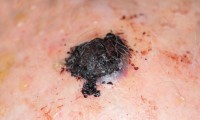-
Moderna and Merck’s Novel Cancer Vaccine, Keytruda Combo Cuts Risk of Skin Cancer Death, Recurrence by Half
- Source: drugdu
- 225
- December 27, 2023
-
M&A saw an uptick in 2023. Analysts expect the trend to continue
- Source: drugdu
- 230
- December 26, 2023
-
FDA Grants Priority Review to Genentech’s sBLA for Xolair to Treat Food Allergies
- Source: drugdu
- 105
- December 22, 2023
-
Gene Therapy and a New Medicine Delivery Approach Signal Progress for Cystic Fibrosis Patients
- Source: drugdu
- 95
- December 21, 2023
-
Artificial Intelligence workplan to guide use of AI in medicines regulation
- Source: drugdu
- 102
- December 20, 2023
-
Medtronic expands AI endoscopy partnership with Cosmo
- Source: drugdu
- 99
- December 13, 2023
-
Pharma industry groups push initiatives against climate change at COP28
- Source: drugdu
- 100
- December 6, 2023
-
Boehringer Ingelheim and IBM announce AI antibody drug discovery partnership
- Source: drugdu
- 110
- December 4, 2023
-
Amgen and MSD-backed start-up wins $10m for drug and device development
- Source: drugdu
- 141
- December 2, 2023
-
AstraZeneca’s rare disease unit receives NICE recommendation for Wolman disease therapy in infants
- Source: drugdu
- 99
- November 30, 2023
your submission has already been received.
OK
Subscribe
Please enter a valid Email address!
Submit
The most relevant industry news & insight will be sent to you every two weeks.













